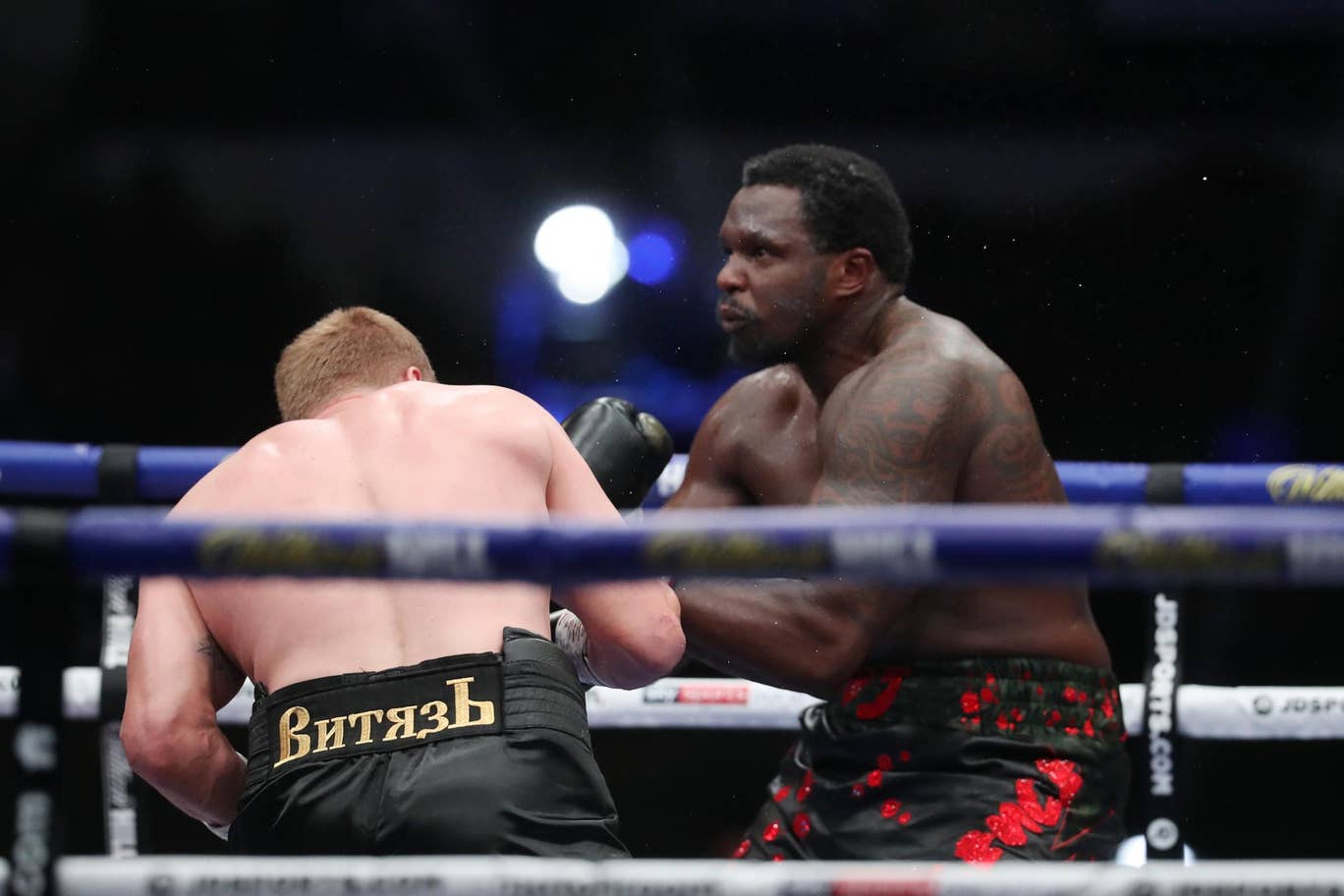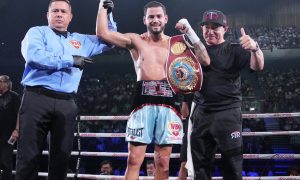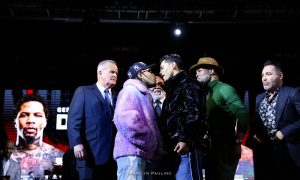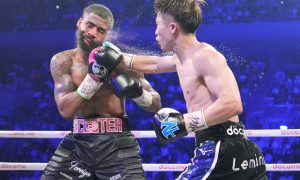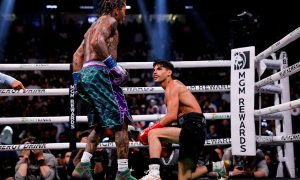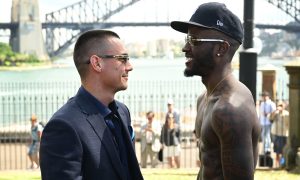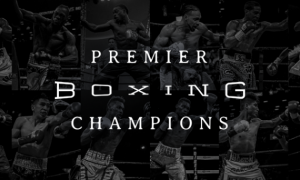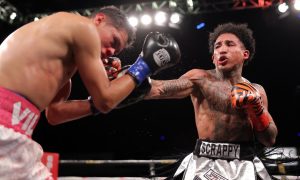Dillian Whyte (27-2, 18 KOs) was cruising towards a stoppage victory against faded veteran Alexander Povetkin (36-2-1, 25 KOs) on August 22.
Whyte had dropped the Russian twice in the fourth round and, going into the fifth, looked poised to finish off a signature victory. One which would even further strengthen his 13-month-long claim to the WBC Heavyweight title’s mandatory challenger spot.
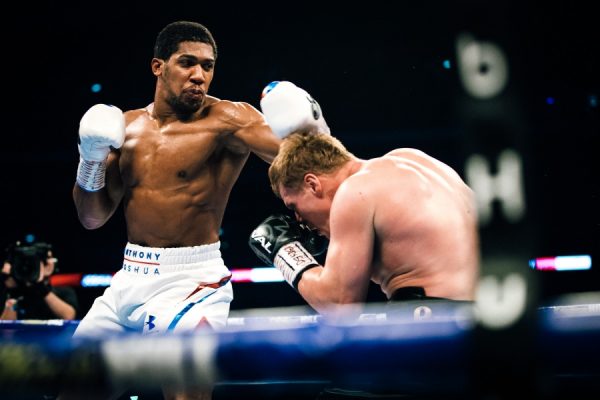
However, in boxing, much as in life, there are no guarantees. 20 into the fifth round, Povetkin threw a glancing jab, which Whyte countered with his own right hand.
The Russian slipped deftly to his left, and in the same motion, threw a devastatingly short and powerful left uppercut. It landed square on Whyte’s chin, stiffening his legs and laying him flat out on the canvas. Referee Mark Lyson didn’t even bother with a count. A sequence as shocking as any you’ll see in this or any other pugilistic year.
With that punch, Whyte lost all of the leverage he had with the WBC to force a fight with their champion. For any relative newcomers to boxing, an explanation may be in order. When any title sanctioning body declares a mandatory challenger, it is understood that that body’s full champion should agree to a fight with the mandatory within a calendar year of that position being filled. Whyte had originally won that position with a decision win over the rugged Oscar Rivas (26-1, 18 KOs) in July 2019.
It’s easy to fault Whyte for his opponent choice in Povetkin but, given the landscape of the division at the time, he was only taking a slightly bigger risk than was necessary. Povetkin was coming off a split draw against Michael Hunter, a former cruiserweight, and looked to have slipped from “contender” to “gatekeeper” at heavyweight.
Aside from that, the WBC title to which Whyte had earned a shot was tied up between Tyson Fury (30-0-1, 21 KOs) and Deontay Wilder (42-1-1, 41 KOs). Exactly six months prior, on February 22, Fury had dropped Wilder twice en route to a seventh round TKO victory. Wilder immediately triggered his rematch clause, setting up a trilogy fight. Originally penciled in for July, current travel restrictions due to the pandemic pushed it back to December 19 at Las Vegas’ Allegiant Stadium.
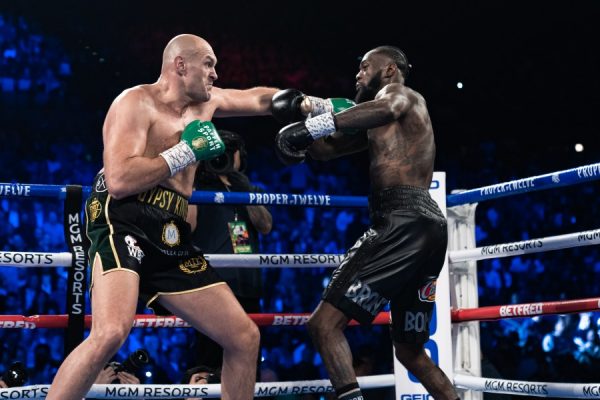
For Whyte, that timetable meant that his earliest title shot would most likely occur in April or May. And that was if the winner of Fury/ Wilder III came out of the fight relatively unscathed: not a sure thing by any means. Whyte needed at least one opponent – most likely two – in order to bridge the gap and keep his name in the conversation at the top of the heavyweight ladder.
Povetkin was an intriguing matchup – just dangerous enough to get viewers to tune in, but most likely not enough to trouble Whyte, being just short of his 41st birthday. 16 years removed from his gold medal in 2004 at Athens, and seven removed from his supposed peak and challenge to Wladimir Klitschko, Povetkin turned the heavyweight division on its ear with a single punch.
Dillian Whyte began calling Deontay Wilder out in 2016, and the two continue to trade verbal barbs to this day, despite neither holding a title or mandatory challenger position anymore. Given their shared history, it’s fitting that their actions following their only knockout losses should mirror each other. Just as Wilder immediately triggered his rematch clause with Fury, Whyte immediately activated his own with Povetkin.
In both cases, this represented a failing on the part of the fighters’ management teams. In Wilder’s case, a total rebuilding of confidence and reinforcement of fundamentals was needed. This required an interim fight before getting back in with Fury. For Whyte, it was simply a question of time. The severity of the knockout he sustained required more time off than what he was giving himself.
This post from Whyte’s Instagram shows him hitting the heavy bag on September 2, just 11 days after his devastating knockout loss. Most doctors would recommend one to two months of zero contact or training after being knocked out.
Little under two weeks later, Whyte posted confirmation of his rematch with Povetkin here. The date: November 21. In other words, too soon. Even if he comes out of the rematch with a win, he is borrowing against his own well-being in his twilight years by doing this.
Discretion is the better part of valor, after all.
With Deontay Wilder’s own rematch clause, things look to be far from straightforward. Per Steve Kim at ESPN, Bob Arum (Fury’s promoter) has stated that Fury will not be fighting Wilder next. After Wilder’s team balked at any proposed December dates, and Fury insisted on fighting once more this year, Arum simply said, “We had a contract, but it expired.”
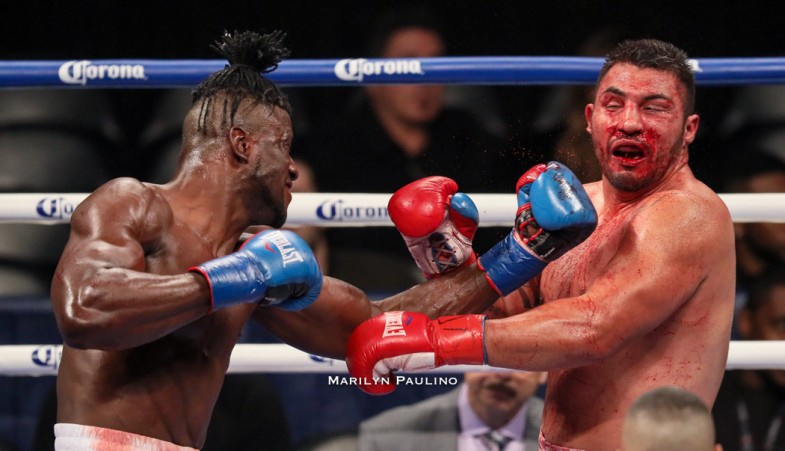
Wilder’s team will fight this with all they have but, as it stands, Fury is looking at alternative opponents for December 5, in England. Among the proposed available names are Oscar Rivas (26-1, 18 KOs), Efe Ajagba (14-0, 11 KOs), and Agit Kabayel (20-0, 13 KOs). Even now, none present as captivating a matchup as Wilder.
Despite Dillian Whyte’s worthiness, his being eliminated as a mandatory challenger, at least in the short term, could provide boxing with something it hasn’t seen since Lennox Lewis: an undisputed heavyweight champion.
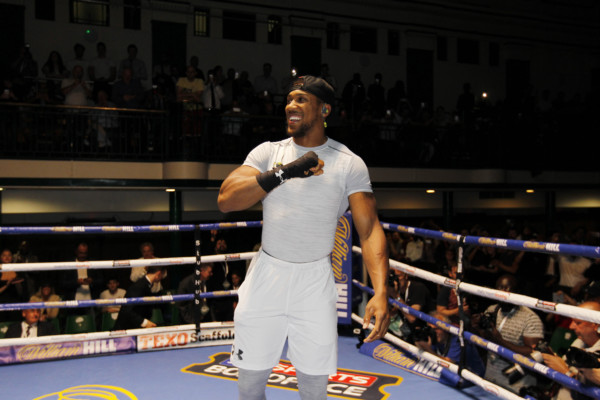
Lawrence Lustig
On December 12th, unified WBA (super), WBO, and IBF champion, Anthony Joshua takes on his IBF mandatory challenger, Kubrat Pulev (28-1, 14 KOs.) Pulev is an incredibly live underdog, and will put up a spirited challenge, but Joshua should prevail. With no other immediate and pressing sanctioning body obligations, Joshua would be free to do as he pleases.
No matter the outcome of Povetkin/ Whyte II on November 21, the mandatory challenger position of the winner would reset. The WBC champion would then have a calendar year, from THAT date, to make a fight with the mandatory. In that time, Povetkin or Whyte could easily lose the position, and the mandatory position would reset… again.
Such is boxing.
In Whyte’s potentially temporary removal from the very top of the heavyweight division, boxing fans were robbed of one gripping fight and presented with the immediate possibility of a MASSIVE one.
Anthony Joshua vs. Tyson Fury for all of the belts.
With so many moving parts, it would serve to not get too excited. However, the scale of the event, should it come off, is worth considering. Joshua/ Fury would be one of the largest fights in boxing history, and would absolutely be the greatest spectacle in British boxing history. It would dwarf Carl Froch’s “80,000 at Wembley” (sorry, Carl) and would even make Joshua vs Klitschko at the same venue look pedestrian by comparison.
In boxing, we’ve become accustomed to accepting things as they are. The politics of promoters and sanctioning bodies, egos of fighters, injuries, and too many other factors to name cause potentially great fights to fall by the wayside.
That doesn’t mean we shouldn’t continue to consider or push for the blockbuster events and super-fights that could happen down the line. With their diametrically opposed personas and fighting styles, along with their combined charisma, Fury and Joshua would bring boxing back into mainstream consciousness should they agree to fight each other next year.
The misfortune of Dillian Whyte is not to be celebrated; he will eventually earn a title shot. But when one door closes, another opens. Pandemic or not. Live attendance or not. The eyes of the entire world would be on Fury and Joshua when they step through the ropes and into the same ring.





